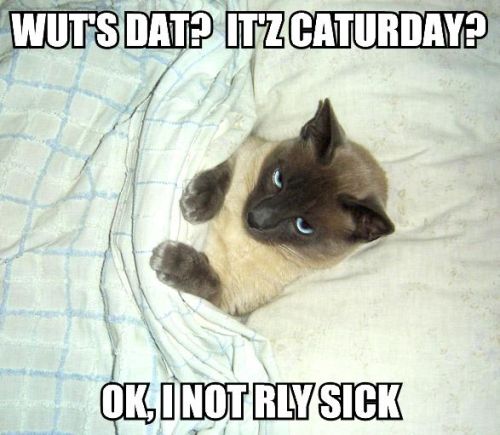We are going to step back from looking at artworks as such and spend some time thinking more about the concept of transformation.
Today we are looking at evolution, which should be an import topic to understand as an artist or designer, because evolution is a process that describes not just the development of plants and animals but also ideas and objects and social functions. Evolution relates to concepts of iteration (series of new versions of things) and innovation, which turns up in the excellent and good sections of the conceptual box of the marking rubric, so whatever innovation is, might be a good idea to figure out.
 |
| standard evolution memes |
 |
| caturday meme, from the encyclopedia dramatica |
Manuel Delanda, Deleuze and the Evolutionary Algorithm in Architecture
Innovation is closely linked to evolution. When the staff look at student work in presentations often what we are looking for is iteration, that is if you think about how everything that you make is a version of something that could be made slightly differently an infinite number of times. Innovation are those slight changes that make a difference to what you have been doing, the change that makes something good. It is impossible to plan to innovate, rather it is a process of iteration that one must engage in, a process of iterating and thinking with an open mind Often when I am in my studio, one of the things I look for when making a decision is whether or not it makes me laugh, if it does there might be something innovative. Similarly when someone makes important work for the first time, often we feel quite appalled, often the response is "is this some sort of joke?" or "has it come to this?" Paolo Virno might say that this is because the logic of innovation is similar to the logic of the joke, and that the what the joke does is that it makes the rules and limits of a given situation apparent by showing how an example might break the rules and not break the rules at the same time, thus in effect changing them forever. This might be said of Duchamp's readymades
Wit and innovation
Paolo VirnoThe human animal is capable of changing forms of life and diverting from consolidated habits and rules. We would go as far as to say that the human animal is ‘creative', were this term not so equivocal. Put in this way, this is an indubitable observation, but far from a happy conclusion, it prompts all sorts of questions and doubts. Which elements of praxis and discourse give rise to unpredicted outcomes? How is a state of equilibrium broken? And finally, what makes an action innovative? The tried and tested way of settling the discussion whilst appearing to fully engage with it demands that the term ‘creativity' is employed in such broad terms that it becomes coextensive with ‘human nature'. Thus we rapidly come to several reassuring tautologies: the human animal is supposedly capable of innovation because it enjoys the gift of verbal language, because it does not inhabit an invariable and delimited environment, or because it is historical; in short, the human animal can innovate because it is … a human animal. Applause and the curtain falls. This tautology eludes the most interesting and awkward issue: that transformative action is intermittent, rare even. To try to explain it by appealing to distinct features of our species is to bark up the wrong tree: these features are equally present when experience is uniform and repetitive. According to Noam Chomsky, our language is ‘constantly innovative' because it is independent from ‘external stimuli or inner states' (and for other reasons that I won't recount here) (Chomsky 1988: 6-7, 113-46). So far so good; however, why does this unremitting independence only occasionally give rise to unusual and unexpected verbal performances? It is no surprise that, having attributed it to language in general, that is, to human nature, Chomsky goes on to conclude that creativity is an unfathomable mystery.
full text here: http://www.generation-online.org/p/fp_virno13.htm
Marcel Duchamp talks about the readymade:
Next week, chaos and entropy/ systems and singularities

No comments:
Post a Comment